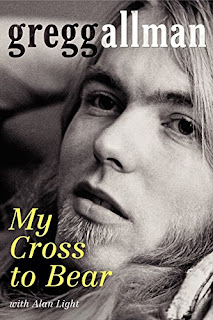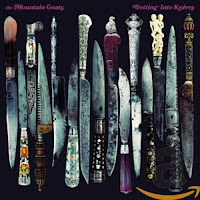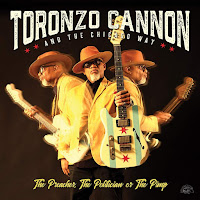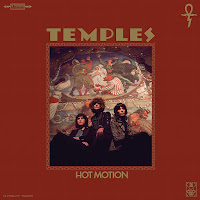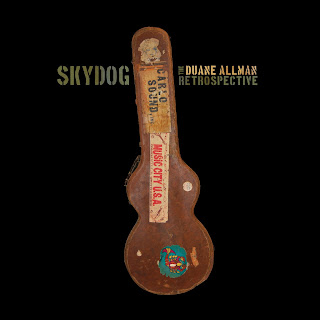The first time
Duane Allman’s name ever appeared on a nationally released album, the occasion was the 1967 Liberty Records debut by Hour Glass, a band featuring both Duane and younger brother Gregg Allman — names that meant little then, but ones which would rise to the ranks of rock’s best-known within a mere few years. And, speaking of a mere few years . . . in retrospect, there’s something almost eerily prophetic about the band’s name. Duane Allman’s brief and brilliant career can be likened to that of a sand-filled timepiece, impassively ticking off a small and finite number of minutes.
Indeed, the release of Hour Glass’s less-than-auspicious debut album in October of 1967 marked the beginning of Duane’s final four years. Within that brief period, he would become a blues guitar hero, the Allman Brothers Band would emerge under his leadership to record a small but essential body of work (including one of rock’s finest live albums), and he would lose his life in a motorcycle accident, just short of his 25th birthday, in the Allmans’ adopted hometown of Macon, Georgia.
Of course, Duane lives on through his work—his reputation is, in fact, bigger than life. An entire new generation of Allman Brothers fans has come of age since then, many of whom have heard only a fraction of Duane’s sprawling musical legacy. Serious students of the guitarist—and they are legion—are aware of his role in dozens of late ’60s/early ’70s recordings made predominantly in Muscle Shoals, Ala., but a broad overview of his session work has never been made available in one package until now.
Duane Allman's Skydog
Rounder Records’
Skydog: The Duane Allman Retrospective is a seven-disc set with extensive liner notes detailing the legendary guitarist’s fast-rising fame amid his dwindling days. Numerous tracks contained here were previously made available on a pair of Duane Allman anthologies and the Allman Brothers’ box set
Dreams; some of the cuts on which Duane appeared — by such notables as Boz Scaggs, Wilson Pickett, Ronnie Hawkins and Delaney & Bonnie Bramlett — are still in print. The box does, however, comprise an impressive one-stop, and it contains hard-to-find and previously unreleased tracks. Among them are the very first known recordings from Duane and Gregg in their fledgling band the Escorts, plus demos from transitional band the Allman Joys that, until now, have remained unheard by most.
These formative recordings, while they lack finesse and polish, illustrate the brothers’ raw talent as well as the range of musical influences that would soon coalesce in the proto-Southern rock sound of the Allman Brothers. In addition to the more obvious blues and R&B workouts are garage- and psych-styled numbers including the early Gregg Allman composition “Gotta Get Away” and a version of “Spoonful.” The Allman Joys’ tautly performed take on the Willie Dixon-penned blues standard, notably produced by music-biz legend John D. Loudermilk, is more attuned to the style of, say, the Blues Magoos than the moody, amped-up “Spoonful” served by Cream, whose version had not yet been released at the time of this session.
The straight-ahead covers of songs by seminal English blues-rockers the Yardbirds indicate that Duane was still several steps away from transforming his influences into a more original and personal style. The oldest tracks, riddled with signs of audio decay, are important mainly as historical documents, featuring performances that rarely, if ever, accomplish the remarkable. What is remarkable, though, is how quickly these early efforts morphed into muscular, though still somewhat derivative, examples of late ’60s American rock and soul.
While the brothers Allman were prevented from exploring their desired, still-unfolding blues-rock fusion on their Hour Glass albums, it is on these sessions that they began seriously honing their studio chops, and they play like they mean business in spite of the imposed stylistic restraints. Their medley of B.B. King numbers — which remained unreleased for many years — demonstrates how fully Duane had absorbed the blues vocabulary into his lead guitar work, which rings with authenticity and zeal on this track, a heartfelt tribute to a key musical inspiration.
The Allman Brothers Band
Had the brothers intended to head in a commercial soul-pop direction — a credible enough choice in light of their love for R&B and Duane’s later association with the Muscle Shoals and Memphis studio scenes — they couldn’t have done much better than the propulsive stomper “Power of Love,” sung by Gregg with gritty gusto and written by the storied Southern songwriting duo of Dan Penn and Spooner Oldham (perhaps best-known for the Box Tops’ “Cry Like a Baby”).
If they had wanted to be remembered as laughable psychedelic pseudo-jazzers, though, they couldn’t have hit the bull’s-eye any more perfectly than they did on their sitar-stained instrumental cover of the Beatles’ “Norwegian Wood” — an abomination that one can only suppose was the imaginary brainstorm of some cigar-puffing record company man. Such is the dues-paying flux that the brothers underwent while laying groundwork for the Allman Brothers Band.
While the Allmans’ history has been laid out on previous collections, the band’s gestation and vital first phase are thoroughly revisited here, and the plentiful sampling of Duane’s session recordings ups the ante considerably. However, it narrows the appeal of the exhaustive and pricey ($140) package to only those listeners who have more than a casual interest in the soulful and rootsy Southern sounds with which
Skydog is stuffed. Those with a collector’s bent will revel in the obscure oddities scattered throughout, though it must be said that occasional selections will tax even fans who are most fascinated by the era.
The most obvious audience for this almost obsessively comprehensive package, then, is a no-brainer: guitar players. Initially, the
Skydog box set is being produced in a run of 10,000 numbered copies, and if no one were allowed to buy it except card-carrying six-string slingers, there’d be no problem moving the inventory. There are few musicians, living or dead, who can claim to have influenced as many guitarists as Duane Allman has done, most of them post-mortem. Two musicians who have felt Duane’s tug agreed to share their thoughts about the great bluesman: Nashville native Pat Murphy and Scott Rath, who landed in Music City via Boston and L.A.
Pat Murphy & Scott Rath
The fact that neither one’s name is probably familiar merely testifies to the wealth of under-sung musical talent in and around Nashville (where Duane Allman himself was born and would put in time as a working-stiff musician gigging at school dances throughout the greater Middle Tennessee region). Both men are accomplished players; Rath, in fact, worked with power-trio royalty Tim Bogert (Beck, Bogert & Appice; Cactus) and Cream co-founder Ginger Baker, and also served a brief stint in the band of Warren Zevon. Murphy, a tasteful player who by choice maintains a somewhat low profile, has nonetheless made his presence known within the Nashville blues community. He can also be heard on the Internet, where one of his well-realized homemade tracks was spotted and subsequently included in the ongoing “Editor Boy’s Big Eight” feature in
Guitar Player magazine. His YouTube channel (youtube.com/murff625) has had more than 100,000 views, and his fans span the globe.
Murphy’s forte is in his deeply felt, restrained style, while Rath is more prone to engaging in full-on, careening slideplay in the upper reaches of the fretboard. What the two musicians do have in common are a remnant of Allman’s bluesman mojo as well a vital relationship with their instruments. Rath and Murphy, as was Allman, are committed players who aren’t likely to stray far from a guitar for more than a modest duration. Both are longtime admirers of the Allman Brothers Band who heard them soon after the release of their self-titled 1969 debut (included in its entirety on
Skydog). Rath still waxes rhapsodic about the day he was forever Allmanized by a friend’s brother who owned the record.
“We put it on and my life changed at that point. The instrumental that starts it — ‘Don’t Want You No More’ — leads into possibly one of the greatest blues guitar licks of all time, at the beginning of ‘It’s Not My Cross to Bear,’ and then Gregg’s voice comes in,” recalls Rath. “I was slayed, and still am every time I hear that song.”
Murphy relates a story about being a youngster who had begun hearing about “the blues” but didn’t understand what they were. “I was just a kid, just past the Beatles and the Monkees. [I thought], ‘I must know what this “blues” is about.’” Soon thereafter, he happened to hear two consecutive tracks sizzle through a small radio: Derek and the Dominos’ “Have You Ever Loved a Woman,” featuring Duane on slide, and “Mean Town Blues” by Johnny Winter, the other premier slide player at the time. “I knew this was the blues, without anyone saying that it was,” remembers Murphy. “Duane spoke the language.”
Separated by well over a thousand miles, both witnessed Duane onstage in late 1970. Murphy vividly recalls attending an Allman Brothers show at Vanderbilt University on October 30. “I remember Duane, I remember the slide . . . it was mesmerizing,” he says.
Just over a month later, on Dec. 2, Rath was fortunate enough to be in Syracuse, New York for one of the only two shows at which Duane joined Eric Clapton’s Derek and the Dominoes, reprising the invaluable role he played on the sessions for the still-classic
Layla album. Perhaps only a guitarist who’s a dedicated Duane devotee can articulate the qualities that made him so exceptional, and Rath is just such a disciple.
“Duane had the phrasing and soul of the best blues players from Chicago, but with the inventiveness of guys like Jeff Beck,” he explains, “so he basically grew up understanding the nuances of the blues and how a single note or phrase can tell a story or let you feel the blues. Listen to ‘I’m Gonna Move to the Outskirts of Town’ [included on
Skydog, drawn from
Live at Ludlow Garage: 1970] or the B.B. King medley by the Hour Glass, and you will hear blues guitar at its finest.”
Rath also notes Allman’s “melodic sense,” which he shared with bandmate Dickey Betts, but which, in Allman’s hands, took sometimes astounding, sometimes reckless liberties. “[Duane] was known to listen to [progressive jazz masters] Charles Mingus and John Coltrane, and his sense of abandon shows, but with melody.” Murphy points out that Duane’s tonal vocabulary hovered near the simple handful of notes in the pentatonic scale — basically, a blues mode — and that his playing could at times lack precision, be that due to unchecked passion or intoxication, but he enthusiastically agrees with Rath’s assessment of Allman’s knack for invention.
“He might put himself out on a limb, but he went for it,” says Murphy. “Dickey Betts might have been the better technician, but he played it kind of safe—he’s not going ‘out there.’ Duane did go for it, every single time.”
Allman In The Studio & On Stage
Numerous examples of these spirited improvisations can be heard on the
Skydog set, though the majority are found on the Allmans’ tracks — particularly the live ones — and culled from select studio dates on which Duane was given ample room to stretch out. Numbering among these are the landmark
Layla sessions and the memorable Boz Scaggs track “Loan Me a Dime,” a recording that helped to further cement Duane’s legend as a blues master. After a couple of rounds of impassioned solos earlier in the song, the guitarist revs up the energy in tandem with Muscle Shoals session drummer Roger Hawkins and is only beginning to peak at the 13-minute mark, where the track fades — despite audible evidence that the band was clearly not done playing.
No such premature endings to contend with on
At Fillmore East, the unbeatable double live set that contains several performances clocking in at double digits (producer Tom Dowd, in fact, was forced to edit certain tracks, so lengthy were some of the band’s live forays).
At Fillmore East stands as testament to the fact that the Allman Brothers were entirely in their element on the stage, that they could find ways to keep extended performances exciting, and that there was something seemingly magical about their Fillmore shows in particular. The recording, which commonly resides on best-album lists, inspired many a musician, Scott Rath among them.
“In 1970 I was playing slide guitar and had learned most of the songs on the
Fillmore album the best I could,” says Rath, who routinely uses the same kind of Coricidin glass medicine bottles with which Duane first played slide due to the initial lack of a “real” one — serendipitously defining his smooth-fretting sound in the process. “From beginning to end, with the long jams included, [
At Fillmore East] has been the inspiration for almost every guitar player I know,” he concludes. “Possibly the greatest live album ever.”
Pat Murphy echoes Rath’s sentiment almost verbatim, not even using the word “possibly” to qualify the claim. “The greatest live album ever recorded,” Murphy simply states, referring to the album as the one upon which he modeled his no-nonsense approach to playing music. “There was zero showbiz and almost no stage talk — the music was an entire piece.”
Skydog: The Duane Allman Retrospective, with its overarching view of its subject, can’t boast the cohesiveness of a live Allmans document. The story it tells may be a more detailed and fragmented one than the typical Allman Brothers fan needs to hear, but it’s a tale that unquestionably deserves to be told. Given Duane Allman’s musical and historical significance, the 129 tracks on
Skydog are simply too important — and most of the time, too good — to let slide. [
CD Review by Steve Morley]
~~
Dedicated to the memory of Bobby Rance, another guitarist who left us too soon—and who, had it been possible, would certainly have been quoted here.

